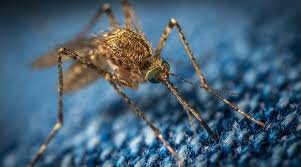The World Health Organisation (WHO) has released alarming data revealing a significant increase in global malaria cases and deaths in 2023, highlighting the persistent challenge facing global health systems, particularly in Africa.
According to Gavi, the Vaccine Alliance, an estimated 263 million malaria cases were recorded worldwide in 2023, representing an 11 million case increase from the previous year.
The report documented 597,000 malaria-related deaths, with a staggering 95 percent concentrated in the WHO African region.
WHO Director-General Tedros Ghebreyesus underscored the critical nature of the situation, stating, “No one should die of malaria, yet the disease continues to disproportionately harm people living in the African region, especially young children and pregnant women.”
The global health landscape shows some promising developments. As of November 2024, 44 countries and one territory have been certified malaria-free, with 25 malaria-endemic countries reporting fewer than ten cases annually.
The WHO African region has witnessed a 16 percent reduction in malaria mortality rates since 2015, though the current mortality rate of 524 deaths per 100,000 population remains significantly above the Global Technical Strategy target.
In a collaborative effort, health ministers from 11 African countries accounting for two-thirds of the global malaria burden signed a declaration to address the disease comprehensively.
These countries include Burkina Faso, Cameroon, Democratic Republic of the Congo, Ghana, Mali, Mozambique, Niger, Nigeria, Sudan, Tanzania, and Uganda.
Technological advancements offer hope in the ongoing battle against malaria. Seventeen countries have introduced malaria vaccines through routine childhood immunisation, potentially saving tens of thousands of young lives annually.
New-generation insecticide-treated nets have also shown promise, accounting for 78 percent of 195 million nets delivered to sub-Saharan Africa in 2023.
However, significant challenges remain. Funding for malaria control reached only an estimated $4 billion in 2023, falling short of the $8.3 billion target set by the Global Technical Strategy.
This funding gap has created substantial coverage deficiencies for critical prevention and treatment tools.
Malaria, a life-threatening disease transmitted by infected Anopheles mosquitoes, continues to pose a significant public health challenge. The parasitic infection can cause a range of symptoms, including fever, chills, nausea, and in severe cases, can lead to organ failure and death.
The WHO has called for increased investments in primary health care, robust data systems, and strategies that address the root causes of malaria, emphasizing the importance of equity, gender equality, and human rights in combating the disease.


























